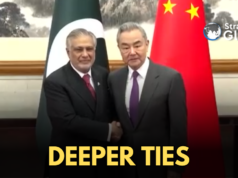When Prem Mahadevan, writer and researcher on terrorism and extremism, was mulling the prospect of a book on the Israeli intelligence agency Mossad, one factor, a personal one, that struck him:
“I had a number of conversations with senior Indian security officials about how India would inflict punishment on the perpetrators of the (26/11) attacks, and one of these gentlemen said to me, ‘We can’t do the covert activities that Israel does, not that we lack capability … but political and international moral constraints that are imposed on us prevent us from having the same free hand that the Israelis enjoy’.”
Why India would accept such constraints is not clear because while the West says they hold India to a “higher moral standard”, it’s basically moral blackmail.
But back to the Israel intelligence agency Mossad and Mahadevan’s book Spies Among The Sands: Assessing Seven Decades of The Mossad and Israeli National Security. He makes two important points:
That the often-biased coverage of operational details of the Mossad tends to conceal blunders, mistakes and infighting within the organization.
Two, Mossad is not the only agency comprising Israel’s national security apparatus. There’s Shabat (Shin Bet) which is domestically focused and Unit 8200 of the army which does signals intelligence. The foreign ministry does its own intelligence collection and analysis.
Another point: the Hamas attack of last October in which over 1000 Israelis were killed was not a Mossad failure, rather “It’s a failure of the military intelligence service, it’s a failure of the political leadership and no one’s going to talk about that certainly not the incumbent leadership in Israel,” Mahadevan says.
He notes that the Mossad spent two years prior to the Hamas attack, tracking its funding, money laundering and its strategic talks with various partners. Perhaps the agency picked up some chatter about this operation, but nobody knows and Mossad is not telling.
The Yom Kippur war of 1973 when Egypt crossed the Suez Canal caught Israel flatfooted but when it came to accountability, there was internal consensus on dividing up responsibility, who would take the blame (not disgrace) and the degree of punishment.
When former prime minister Yitzhak Rabin was assassinated, the rush was to find that scrap of paper or email that would ensure which agency would come out smelling of roses.
This is unlike India where the tendency to be self-critical or condemnatory provides the West a readymade handle to beat this country with. Nor can they be accused of bias since they are only reflecting what many Indians are saying.
In the context of Israel’s current war against Hamas in Gaza, how do the tea leaves read?
“There is a general agreement that Israel does not have a plan,” says Mahadevan, “this war was forced on Israel by Hamas and the only thing clear is that Israel wants to inflict very severe damage on Hamas. They want to make clear the organization has been defeated politically if not militarily.”
Israel wants to degrade Hamas’ military potential, which Mahadevan believes they are going to succeed in doing quite a bit. But they cannot change the intense hostility that exists towards them in the wider region. The ideas of Hamas will live on.
The other point is how Hamas has evolved in terms of planning, preparing and executing an attack of this kind. It was a sophisticated tactical operation relying on intelligence from the thousands of Gazans who used to work in Israel (not any more though) and following up open-source intelligence on Israel.
There were also people like Hamas leader Yahya Sinwar who learnt Hebrew while in an Israeli prison and used that to understand the Israeli psyche, how they think and react. Israel has clearly lost its deterrent and the current violence being inflicted on the Palestinians suggests a determination to regain that no matter the cost.
Thirty eight years in journalism, widely travelled, history buff with a preference for Old Monk Rum. Current interest/focus spans China, Technology and Trade. Recent reads: Steven Colls Directorate S and Alexander Frater's Chasing the Monsoon. Netflix/Prime video junkie. Loves animal videos on Facebook. Reluctant tweeter.





